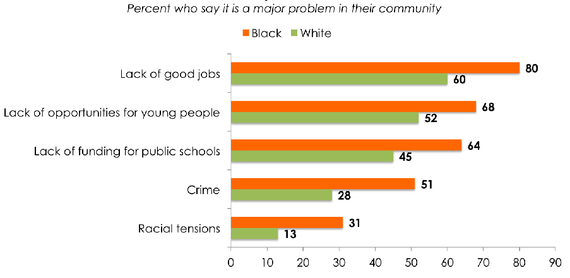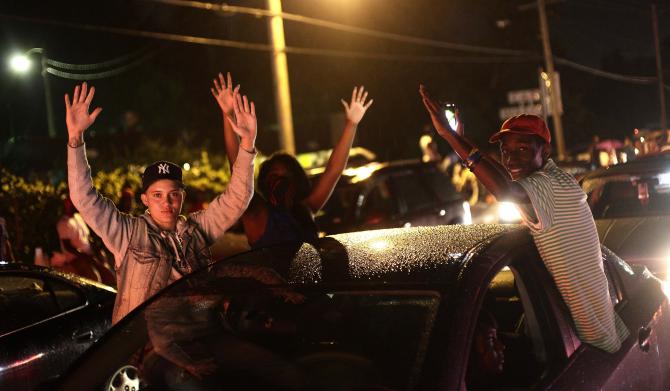The killing of Michael Brown, an unarmed black teenager by a police officer in Ferguson, Missouri, and the city’s handling of the case and subsequent protests has once again focused minds on race discrimination in the US. Just how quickly the incident became incendiary shows how tension and segregation are never far from the surface.
Events such as the killing of unarmed, 18-year-old Michael Brown in Ferguson, Mo., can provide the moral shock that political movements need to build their ranks and bring attention to a community’s afflictions. They can be like the murder of 14-year-old Emmett Till in 1955 or the beating death of Matthew Shepard in 1998 — transformative episodes that remake perceptions and force a society to abandon abhorrent practices.

The shooting of unarmed black teenager Michael Brown by a white police officer in Ferguson, Missouri, and the anger poured out in response by Ferguson’s mostly black population…

The recent killing and then demonization of an unarmed 18-year-old African-American youth, Michael Brown, in Ferguson, Missouri by a white police officer has made visible how a kind of military metaphysics now dominates American life.

This past week’s racial crisis in Ferguson, Mo., has uncovered a divide within the black community—one based on generation, class and the cloudy political vision offered by African-American politics in the Obama age.

The intensive militarization of America’s police forces is a serious menace about which a small number of people have been loudly warning for years, with little attention or traction.

Seven years ago the Institute of the Black World 21st Century launched its first Annual Marcus Garvey Commemorative Meeting and Pan-African Unity Dialogue (PAUD). Last Saturday morning at Local 1199 SEIU more than fifty invitees assembled to pay tribute to what would have been Garvey’s 127th birthday and also to continue the IBW’s mission to bring together individuals representing various Black world diaspora communities for the purpose of dialogue and coordinated actions.
In his brief remarks Thursday on the alarming standoff in Ferguson, Missouri, between protesters angry over the police shooting of an unarmed black teenager…

On top of its vast medicinal benefits and a “high” that’s safer and mellower than alcohol, what if cannabis could also power a cheap…
During the Pan African response to the U.S.-Africa Summit, Dr. Leonard Jeffries stressed that the Washington Summit was driven by a clear interest of the United States of America to dominate Africa as part of the new scramble for the re-colonization of Africa.
In November Florida will put its first medical marijuana initiative to a vote. If passed, the initiative will provide medical patients limited, state-legal access to marijuana medicine, rather than turning them into criminals. While 23 states have successfully passed similar medical marijuana initiatives with strictly positive results, Florida’s medical marijuana opponents continue to wave red flags that have long been debunked by logic, science and reality. What’s really motivating these stubborn prohibitionists? Here’s a hint: it’s green like pot, but doesn’t smell as good.

Legendary jazz pianist and composer Cecil Taylor was swindled out of $500,000 by a man who befriended him last year.














